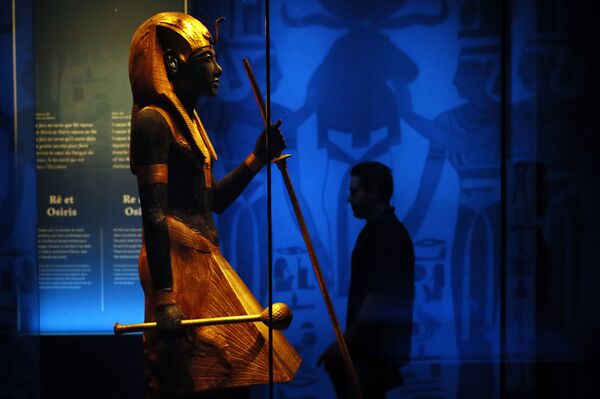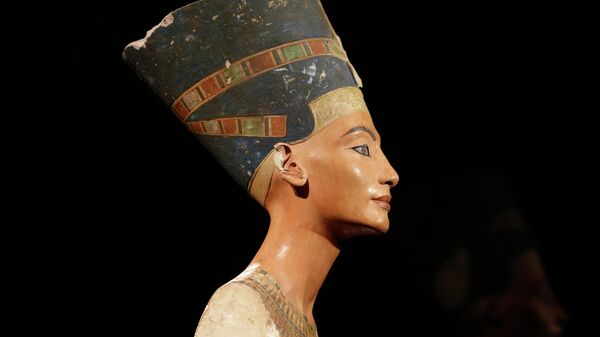The mummy of the legendary Queen Nefertiti, widely-known to have left a legacy of personal trademark beauty and power secrets, may be one of two mummies already found, a leading Egyptian archaeologist has claimed, writes The Telegraph.
Dr Zahi Hawass, who announced he was excavating a new site in the Valley of Kings to search for the tomb of Queen Nefertiti and Queen Ankhsenamun, the wife of Tutankhamun on Friday, admitted that the Queens may have already been found in Tomb KV21.
Dr Hawass insists that “modern DNA techniques” could be successfully used to identify Queen Nefertiti as one of two mummies discovered in the Valley of the Kings.
“Using modern DNA techniques, we are examining the two female queen mummies found in KV 21 because one of them, the headless one, might possibly be of Ankhesenamun due to the preliminary studies. We also suspect that the other KV 21 mummy could be of Nefertiti,” said the expert.
Speaking at a press preview of the exhibition Tutankhamun: Treasures of the Golden Pharaoh, a collection of 150 treasures at the Saatchi Gallery in London on 1 November, Dr Hawass said:
“Everybody asks me if Nefertiti is buried in the tomb of Tutankhamun and the answer is no.”Celebrating the arrival of #Tutankhamun: Treasures of the Golden Pharaoh, @saatchi_gallery London.@FedEx @Vikingcruises @CBRE @TaittingerUK#TutankhamunLondon #taittingertime pic.twitter.com/65yGizWmkN
— Tutankhamun London (@TutankhamunLDN) November 2, 2019
Dr Hawass, who was the head of Egypt’s Supreme Council of Antiquities from 2002-2011 added:
“I did excavate on the other side of the wall [in Tutankhamun’s tomb] two months ago to find out if there is an extension but really I do not think at all that there is anything connected with this tomb.
“There is no tomb of Nefertiti inside.”
On his website Dr Hawass said that if DNA analysis definitively identifies Nefertiti’s mummy that Egypt would commission CT scans of the head that would “reveal the most complete and accurate image of the queen.”
3D model of Egyptian Queen Nefertiti's face. Paleoartist Elisabeth Dayes recreated. Entire process took more than 500 hours. pic.twitter.com/B9kyxG9t6o
— Nazlı Börkü (@nazlibrk) February 5, 2019
Tomb KV21, located in the Valley of the Kings in Egypt, was initially found in 1817 by Giovanni Belzoni.
It contained the mummies of two women, thought to be Eighteenth Dynasty queens.
In 2010, a team headed by Zahi Hawass and including geneticist Carsten Pusch among others used DNA evidence to identify one mummy as the biological mother of the two foetuses preserved in the tomb of King Tutankhamun, yet archaeologists haven’t confirmed if this is Queen Ankhsenamun.
Archeologists have been on a quest to find the legendary Egyptian queen Nefertiti, who died in 1331 B.C., for years.
It was previously believed the female monarch could be buried inside a secret chamber within King Tutankhamun's tomb.

However, last year the Egyptian Antiquities Ministry announced that a three year investigation that involved radar scans of the tomb conclusively proved that there were no secret chambers.


